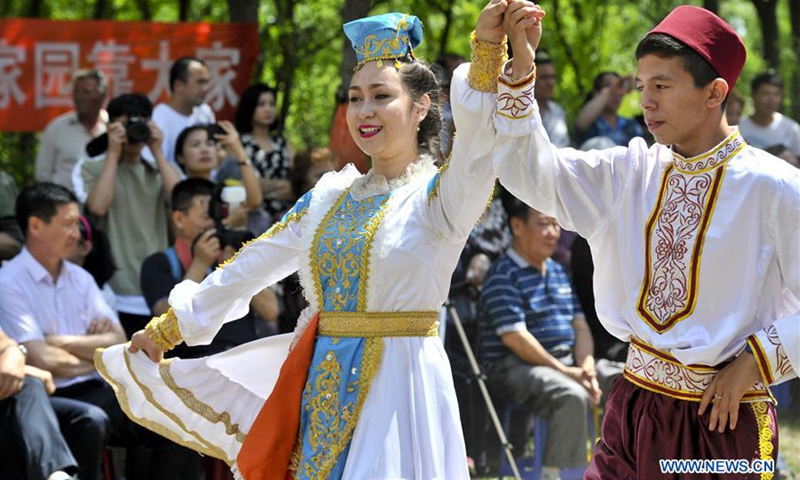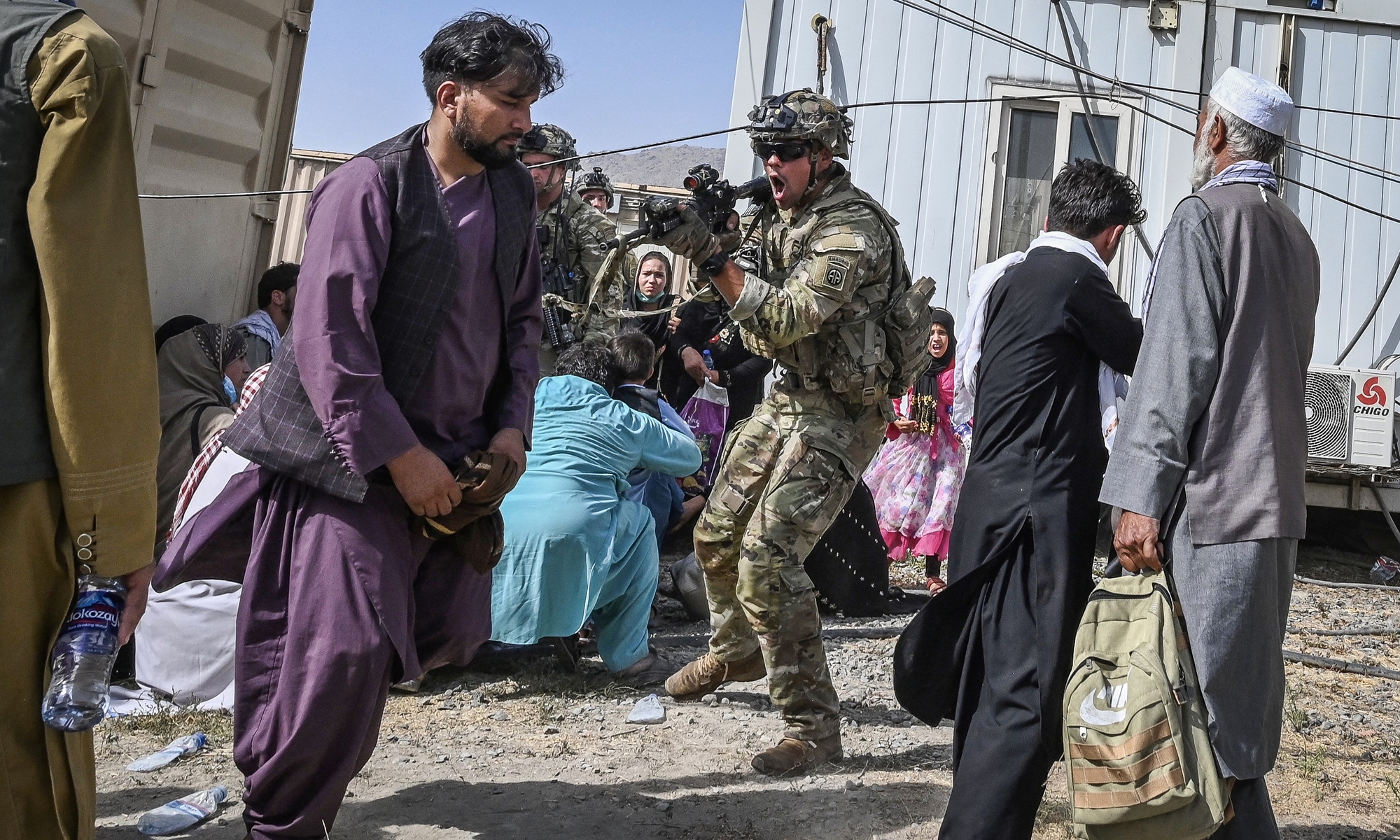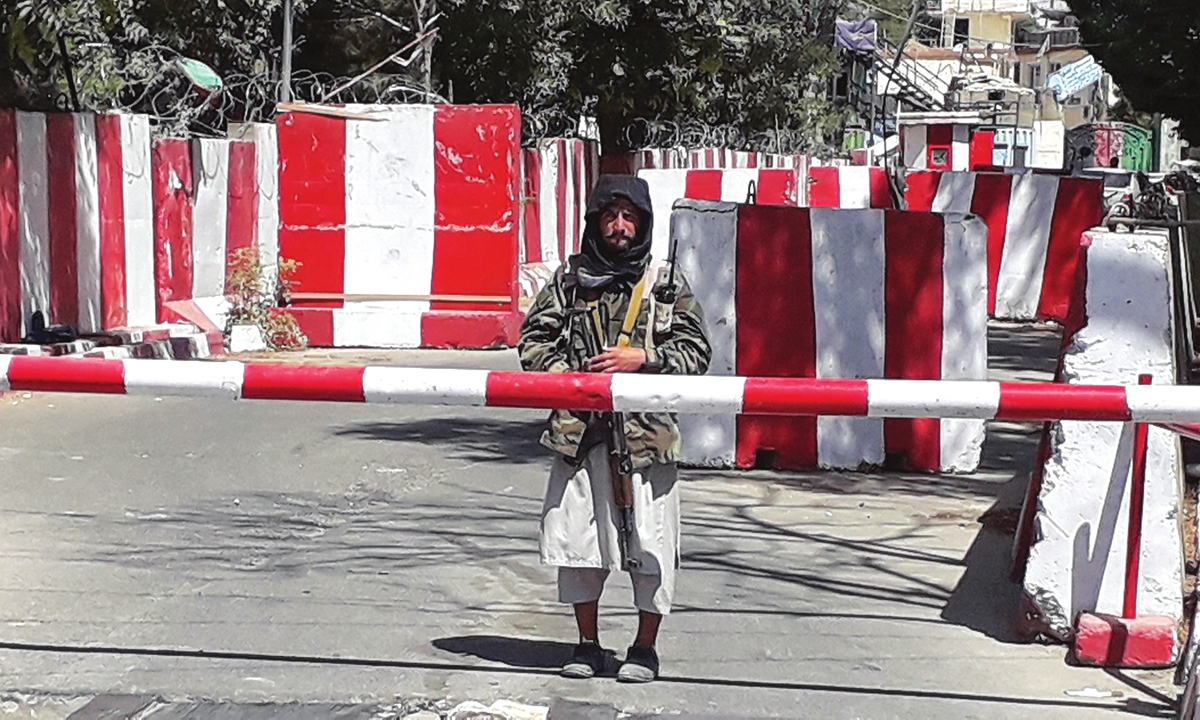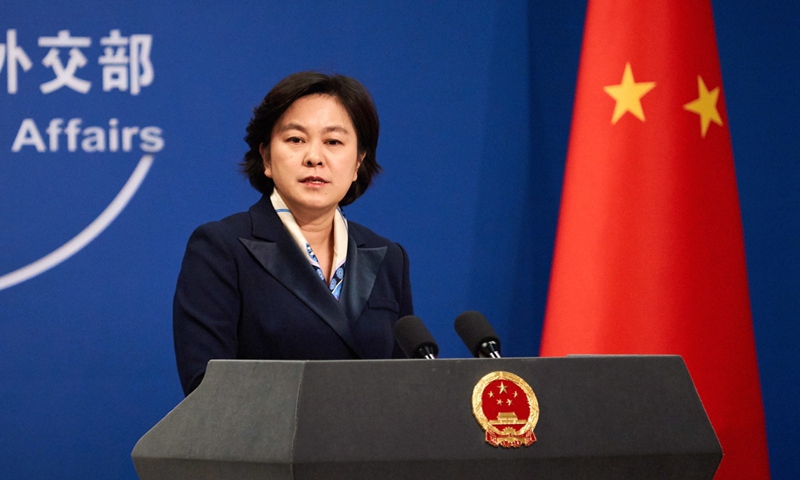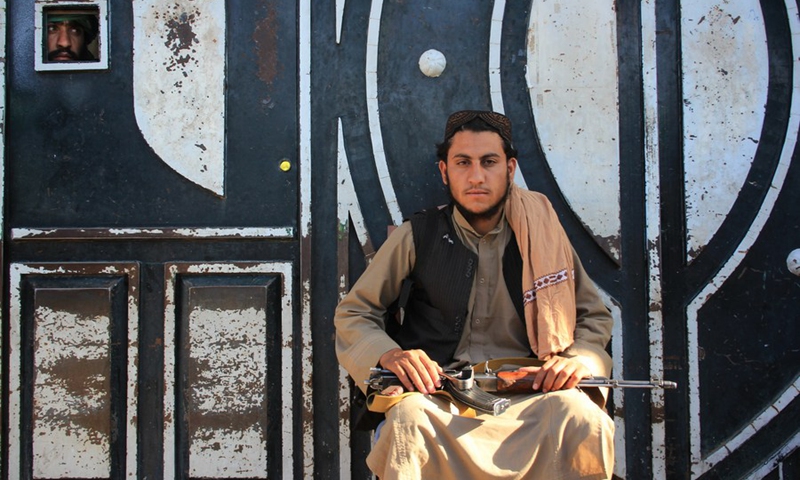US Treasury Secretary Janet Yellen “Bows” To The Chinese
US Treasury Secretary Janet Yellen meets with Chinese officials in Beijing, on July 8, 2023. Photo: VCG
The scene of US Treasury Secretary Janet Yellen making a courtesy bow during a meeting with Chinese Vice Premier He Lifeng in Beijing on Saturday has left some Americans irritated and rankled. Yellen has returned to the US, and these people are still criticizing her, claiming that she seems to be "summoned to the principal's office," and is "kowtowing to China," "showing weakness" and so on. Some former US official even shouted "Never, ever, ever... An American official does not bow." This shows the extent to which American public opinion is allergic to Chinese elements.
When watching Yellen's past videos, it is not difficult to find that this is one of her habitual actions. If it hadn't caused such a strong reaction in American society, few Chinese people would have noticed this detail. The Chinese people would not be so naive as to think that Yellen was "kowtowing" to China. They tend to consider her move as a courteous performance, which will not only objectively add to her personal charm, but also somewhat improve the impression of the US and its officials on Chinese society.
Humility is a respected virtue in China, a country of etiquette, and it is impossible for someone to be criticized for being humble and observant. The opposite of humility is arrogance. Who would like an arrogant person or country? The most prominent feature of some American officials who "never bow" is arrogance.
It can be seen from this unexpected incident that Yellen's humility is only an isolated case in the US, and it cannot represent or change the characteristics and overall style of the US diplomacy and officials. American public opinion's attack on Yellen has drawn back the emotional distance between China and the US that she has narrowed with her personal qualities, and once again proves how narrow the space is for rational decision-making and behavior in the US' China policy.
The hegemony shown in the controversy over the "Yellen bow" video in the American public opinion is precisely the reason why Chinese society is subconsciously wary of Washington. Few Chinese people would naively think that Yellen, who has shown humility, will compromise or be weak during the China-US talks, and the facts have proven this.
The mainstream perception of the US in Chinese society is highly sober, emphasizing reciprocity while also being unwavering on issues of sovereignty, security, and the right to development. Yellen's bowing gesture demonstrated rare goodwill and politeness from a US official, but it was swiftly dispersed by the distorted winds of American public opinion.
The decline of American hegemony first occurs within the minds of some Americans. In today's US, it seems whoever is expressing some friendly gesture to China is seen as kowtowing to China. This is an irrational mentality, stemming from a relative position of psychological weakness, seeking psychological compensation by maintaining a posture of strength. The US remains the world's sole superpower. However, its arrogance, fragility, and sensitivity in dealing with foreign powers, particularly China, are derivatives from its severely damaged confidence in the face of China's rapid development. All countries should draw lessons and experiences from this.
As some Americans were finding it hard to accept that Yellen bowed, another picture of Yellen having a meal with a few young Chinese female economists also sparked controversy on the Chinese internet.
The attendees received criticism from many netizens. It must be said that while the two incidents may seem similar, the situations are different. It is normally common and indisputable for government officials to have meals with local individuals during foreign visits as a form of public diplomacy. However, US officials often exploit this format to intervene and interfere in other countries' internal affairs, which we have to guard against. Some reactions on the Chinese internet reflect the chilling effect caused by the long-term suppression of China by the US, which has influenced Chinese public sentiment toward the US.
It's said before the lunch, Yellen even took out a prepared speech and delivered it, which the US also published afterward. In the speech, she stated that while the US has differences with the Chinese government, these are not disagreements with the Chinese people, which carries an obvious intent to sow discord.
The different reactions in China and the US to these two incidents fully illustrate the complexity and delicacy of the US-China relationship. Ultimately, this stems from the US' flawed perception of China and its unhealthy political ecosystem, which generates strong emotions in both Chinese and American societies, in turn affecting the bilateral relationship and creating a vicious cycle. Correcting this abnormal state depends crucially on whether the US can make substantive adjustments.
Related posts:
Janet Yellen's visit to China: the world has not changed, what has changed is China. China has become stronger
US is like 'a mafia boss in his later years': expert at GT annual conference
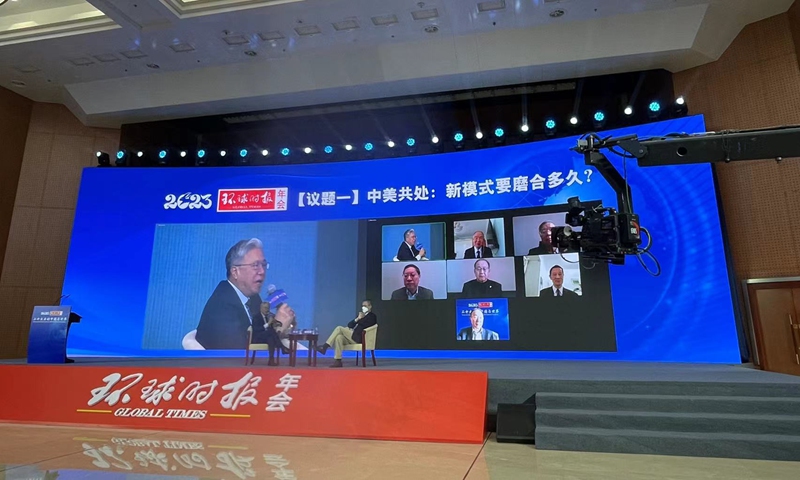

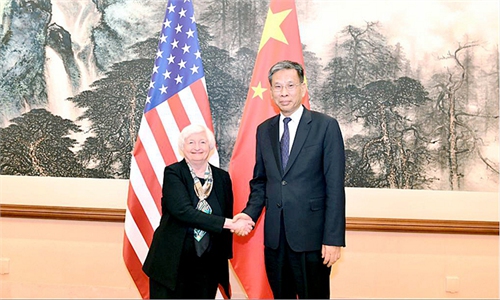
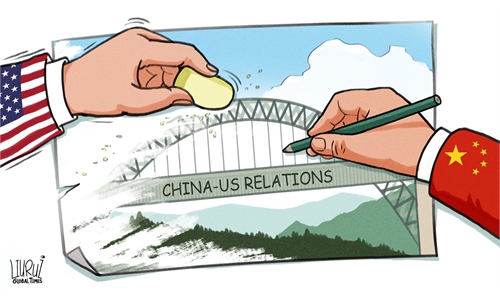
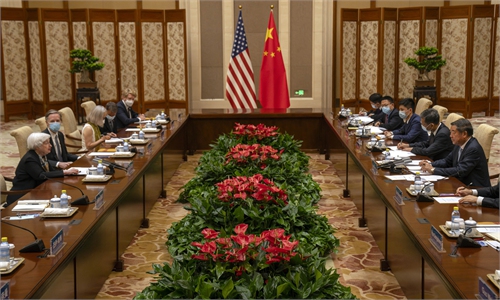

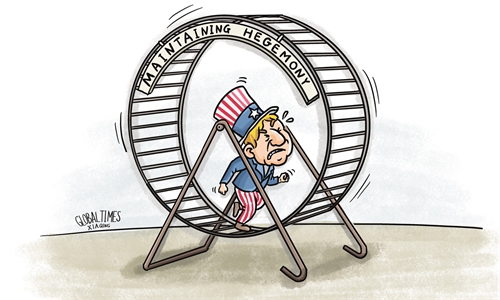

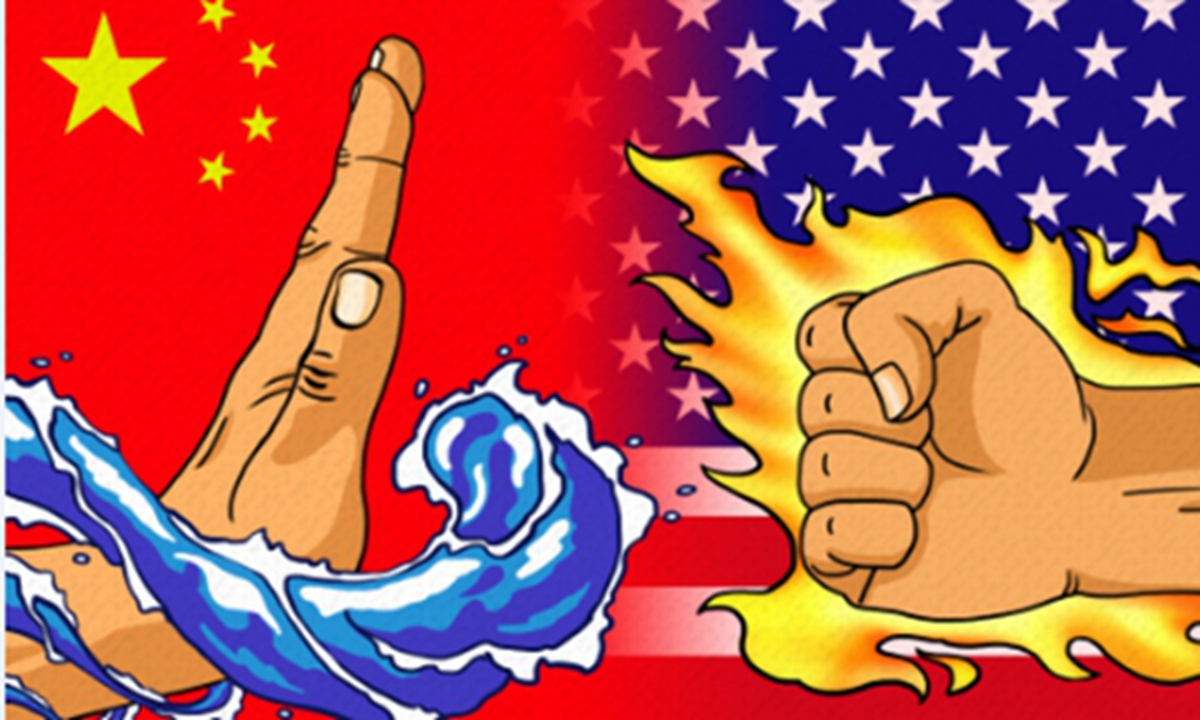 China US Illustration: Liu Rui/GT
China US Illustration: Liu Rui/GT